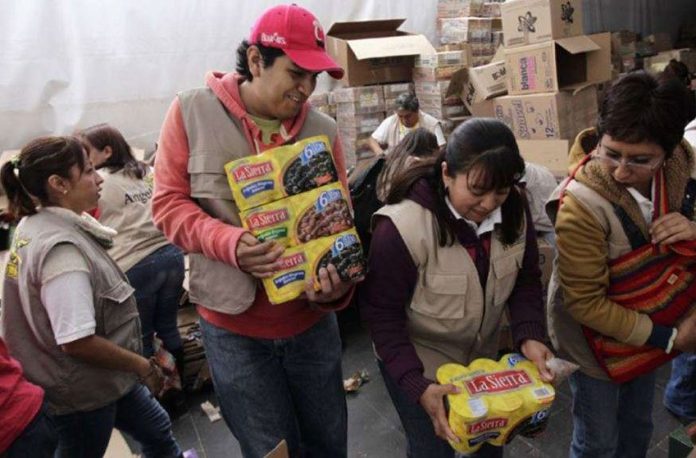An anti-hunger initiative implemented by the current federal government failed to meet its key objective of ending food poverty, studies show.
President Peña Nieto announced the National Crusade Against Hunger (CNCH) in December 2012 as the main anti-poverty strategy of his administration.
The program, which had five main objectives including the total elimination of hunger through adequate food availability, was officially launched the following month at an event in Chiapas.
But almost six years later, there are still more than 20 million Mexicans who don’t have access to enough food, statistics show.
Several audits and assessments conducted during Peña Nieto’s six-year term revealed a range of problems in the design and implementation of the CNCH but the problems were not corrected, the newspaper Reforma reported today, and so the crusade failed to achieve its goals.
In addition to eradicating hunger, they included eliminating childhood malnutrition and increasing food production and income of small farmers.
Two years after the initiative was implemented, the National Council for the Evaluation of Social Development Policy (Coneval), a government agency, warned that the CNCH was not making progress on its key objective of eliminating hunger.
“In terms of . . . the impact of the crusade, a two-percentage-point reduction in extreme poverty is observed but no effect is observed in the indicator regarding a lack of access to food,” a Coneval 2015 report said.
Later in 2015, the Federal Auditor’s Office (ASF) said that there were problems in the design of the crusade, which was implemented by the Secretariat of Social Development (Sedesol), and that there was no clear information about how its budget was being used.
The ASF also warned that the crusade’s coverage was limited to less than 60% of the population it targeted and that 50 programs participating in it weren’t supplying any data that allowed the impact on people’s lives to be measured.
In its 2016 public accounts report, the ASF said that Sedesol failed to adequately follow up on the implementation of its CNCH programs and that it had again failed to report the total budget that had been allocated to the crusade.
Late last month, the auditor’s office advised Sedesol to modify or terminate the program because more than five years after it started it was still plagued by the same problems in its design and implementation that undermined its effectiveness.
Alejandro Gómez, an expert in social development policy, said the crusade could only be described as a failure.
“. . . The ultimate indicator of success of the crusade, precisely [levels of] food poverty and access to food, did not improve substantially . . .” he said.
Source: Reforma (sp)
